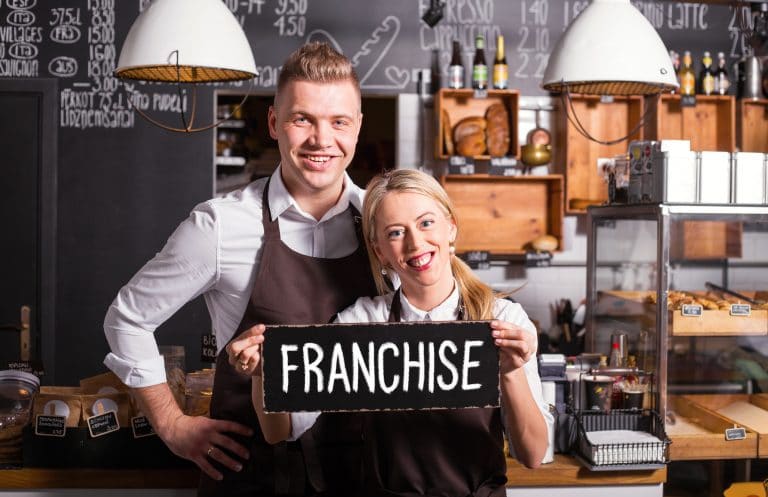
A franchise would be ideal for many restaurant entrepreneurs who want to open their own business. Restaurant franchises have several advantages, including quick brand awareness and built-in marketing. However, purchasing a franchise restaurant isn’t always as simple (or as inexpensive) as it appears.
A step-by-step guide to finding and purchasing a franchise restaurant may be found here.
1. Recognize what qualifies a restaurant as a franchise
Franchises do not exist in every restaurant company.
Starbucks, for example, is one of the most well-known coffee shops in the world. It isn’t, however, a franchise. The corporation owns and operates it.
Applebee’s is a chain of restaurants. Franchisees obtain the rights to open and run an Applebee’s restaurant. The franchisee is required to pay royalties to the franchisor, which is the company that owns the franchise. In exchange, the franchisor (in this example, Applebee’s owner) is responsible for all marketing, menu design, and problem-solving for all franchisees.
2. Consider which franchise is suitable for your local market
Fast food (think McDonald’s, Taco Bell, and KFC) and fast-casual (think Applebees, Panera Bread, and Chilis Grill & Bar), as well as smaller chains like Cold Stone Creamery, are examples of restaurant franchises.
The first step in developing a restaurant franchise is to assess if it will fill a specialized market. This entails a competitive analysis as well as a characterization of the local economy.
Investing in an On The Border Mexican Grill & Cantina franchise, for example, may not be the ideal decision if the neighborhood already has multiple Mexican restaurants. It might also be considered too costly in comparison to the typical household income. A market analysis, on the other hand, might reveal that it is welcomed with open arms by the locals.
3. Examine your budget and restaurant qualifications
Restaurant franchises are expensive ventures. Cost more than anything will limit your choices when it comes to buying a franchise restaurant. Experience is another important factor in starting a restaurant franchise. Parent companies (franchisors) do not give the keys to a franchise unit to anyone. Please pay attention to the following:
• Applebees requires a minimum of $ 1.5 million in net worth and 500,000 in cash.
• Brinker International, the parent company of On the Border Mexican Grill & Cantina, Chilis, and Romano’s Macaroni Grill, requires a net worth of $ 500,000 and at least five years of the casual dining experience.
• Panera Bread requires a net worth of $ 7.5 million and liquid assets of $ 3 million. Plus experience in real estate and management of multi-unit restaurants.
Many restaurants list franchise requirements directly on major franchise website portals – online companies that list all current existing franchise sales opportunities.
4. Create a restaurant business plan
A restaurant business plan that you need for bank or investor financing will help fill in any gaps in your restaurant franchise concept. It will force you to study things like an area’s population base, profiles of the local economy, and location choices.
As part of writing a restaurant business plan for a franchise, you need to research the history of the franchise and current financial status. This is especially important when investing in a new restaurant franchise.
5. Go through a restaurant franchise contract with an attorney
Once you get through the initial process of getting approved for a restaurant franchise and secure your funding, you will sign a long contract with the franchisor. Check the contract with a fine tooth comb before signing the dotted line. Most importantly, know what can happen if the franchise fails. Are you determined to pay the franchisor a certain amount of money every month or every year regardless of success? Who does the equipment belong to? Will you get some of your investment back? Don’t assume it’s an instant hit because it’s a chain.

It Still Takes Hard Work and Patience
There are many benefits to buying a franchise restaurant. However, it requires significant capital and comes with many legal requirements. For those looking for a less expensive investment and more creative freedom, opening an independent restaurant, starting a food truck, or even trying out self-catering is one way into the food industry.
Becoming a franchisor (this is the name of those who sell their model to a franchisee) is a truly remarkable effort, especially because often young inexperienced people who need training and support to achieve brand success are presented as franchisees.
Mixed Models
Numerous combinations can be created between these categories just indicated. In fact, the owner of the model can decide to keep the stores in large cities for themselves and distribute the most remote or overseas stores to members or affiliates.
The possibilities of arranging these variants in legal terms are almost endless and only a good consultant can guide you in the real choice. For the moment it is enough to know that we will have to start all over the chain of responsibility and power.
A proven successful business model
When you want to develop a commercial chain of points of sale, you need to start from an idea that has already proven its value in the field. It is definitely not advisable to leave one morning and open 4-5 stores without knowing how that type of company will perform.
No one would imagine opening more stores immediately, but it is not so. Sometimes a group of members starts out big and then if things go wrong they find themselves lonely.
To Sum It Up
The first stage is to ensure that you have a sound business strategy and to develop a prototype project; the more successful the pilot, the simpler it will be to locate partners or collaborators to help you distribute your brand.
Examine your budget as well as the qualities of the restaurant.
Restaurant franchises are costly investments. When it comes to purchasing a franchise restaurant, cost will limit your options more than anything else. Another crucial component in launching a restaurant franchise is experience. The keys to a franchise unit are not given to anybody by the parent company (franchisor).
Franchising is more suited to people who like to focus on the practical administration of the business and personnel rather than the more creative aspects of catering, such as the search for new dishes and tastes to add to the menu. It might be a more expensive approach to start your own firm, but it comes with the benefits of joining a company that has previously been established.